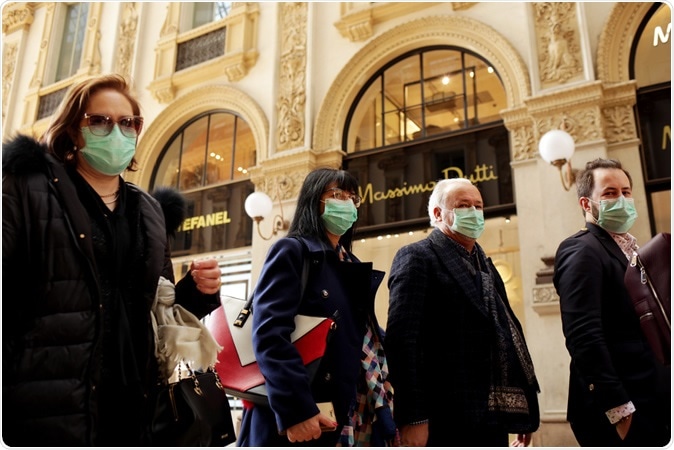Italy will shut down schools and universities in response to the sharp increase in coronavirus disease (COVID-19) cases. The Italian government has ordered the nationwide cancellation of education classes until Mar. 15, as the country grapples to contain the worst outbreak that has hit Europe, claiming 107 lives and infecting more than 3,000 people.

MILANO, ITALY- FEBRUARY 22, 2020: Coronavirus in Italy. Image Credit: Shutterstock
Prime Minister Guiseppe Conte released a video on social networks explaining the government's decision to impose precautionary measures due to the sharp increase and vast spread of the deadly virus.
Comunicazioni del Presidente Conte | 4/3/2020
"This is not the first time our country has faced national emergencies. But we are a strong country, which doesn't give up: it's in our DNA," Prime Minister Guiseppe Conte said.
"We are facing the coronavirus challenge. A challenge that has no political color. It is a challenge that must require everyone's commitment: citizens and institutions, scientists, doctors, healthcare workers, civil protection, law enforcement. All Italy is called upon to do its part," he added.
Suspension of classes
The country has decided to suspend all teaching activities in schools and universities from Mar. 5 to 15, except in remote areas. The provision will enforce the closure of all schools in infection areas and the suspension of educational activities in the rest of the country. Only teachers and administrative staff need to report to the school.
In terms of the absences incurred by the students, these will not be recorded. For university students, campus teaching activities will be suspended. Universities will adopt distance learning techniques, wherein students stay at home, and teachers conduct activities through online platforms.
Meanwhile, sports events such as the professional football matches will take place without fans present until Apr. 3, to prevent exposure to the virus. The preventive measure is part of the new decree issued by the government in the hopes of preventing the further spread of the virus.
Support for families
Aside from shutting down schools, the government has committed to impose measures to aid and support families with financial support for costs of babysitting and childcare, and the extension of parental leave for female workers. The measure is applicable for families with children under 14 years old.
Prime Minister Guiseppe Conte also encouraged all residents to practice responsible behavior like washing their hands regularly, respiratory hygiene by sneezing and coughing in a handkerchief or tissue, maintaining at least a meter distance from other people, and avoiding crowded places, hugging, and handshakes.
Vast virus spread
In Italy, the virus has already spread to all but one of Italy's 20 regions, with Lombardy reporting the highest number of cases of 1,497. Other regions have reported an increase of cases, with Emilia-Romagna with 516 cases, and Veneto with 345 cases. As of writing, there are 3,089 confirmed cases of COVID-19 in the country, with 107 deaths.
Globally, the total number of cases exceeds 95,000, with 3,285 deaths. The World Health Organization (WHO) reports four new countries reporting their first cases of coronavirus disease, including Chile, Poland, Argentina, and Ukraine. Due to the vast spread of the virus, the WHO warns that the supply of protective equipment for healthcare workers is depleting rapidly. The rapid depletion is leaving healthcare workers at risk of infection and ill-equipped to care for patients.
The coronavirus disease (COVID-19) originated from Wuhan City in Hubei Province, China, in late December 2019. In the past two months, the virus has rapidly spread to more than 80 countries, with mainland China reporting the most number of cases, with 80,409 cases. Of the total number of confirmed cases across the globe, 53,277 patients have already recovered.
The signs and symptoms of coronavirus disease include fever, dry cough, and shortness of breath. In the long run, for patients with underlying conditions and those who are older, the disease may progress to pneumonia and acute respiratory syndrome, which can lead to death if it's not treated promptly.